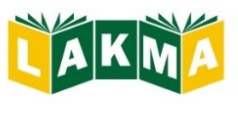Grzegorz SPIEWAK, Macmillan Education
A graduate of University of Essex, UK (MA in Linguistics), and University of Warsaw (Ph.D in English & Linguistics). Teacher of English, consultant, project manager, teacher trainer, acclaimed conference speaker, author. Former academic lecturer and deputy director for English Teaching & CLIL at the Department of English of Warsaw University. Currently affiliated with Macmillan Education (Head ELT Consultant for Central & Eastern Europe, key teacher trainer), as well as with The New School, New York (tutor on MA TESOL on-line programme), DOS-ELTea – an independent teacher development centre (founder & president), and deDOMO Education (project leader and head author). An Honorary President and advisory board member of IATEFL Poland.
PLENARY TALK
21st century values for teaching global English: The why and the how
The fact that around 2 billion people use English around the globe means its potential impact goes far beyond a medium of daily, transactional communication. A global lingua franca is a mirror that reflects the dynamics of a global society. As such it can transfer crucial values across diverse contexts and cultures, and mediate individual user identities.
But if so, what are our real priorities as English language teachers when teaching English as both a medium of global communication and a tool for transferring messages and values? What can – and should – we do to help our students function successfully in this world of global English? And, more generally, is one’s success when using this global, intercultural, 21st century English only a question of high English competence, or an effect of using a wide range of ‘soft’ skills and displaying a high degree of social competence, including above all the skills of accommodation and inter-cultural empathy? These are some of the key questions that I intend to answer in this interactive plenary session. Be prepared to take an active part and to question a lot of your beliefs.
WORKSHOP
Why does communication fail in a(ny) language? And how can value-sensitive language education help out?
We all learn a foreign language in order to communicate with other users. And we all hope we’ll be successful more often than not. But what happens in real life, when people actually try to get their messages across their individual mindsets, cultural assumptions, and worldviews? And, more to the point, how can we prepare them for possible communicative failures? How can we help them become more open-minded and empathetic so that they can respond to increasing diversity? This is where value-added modern language education can do wonders, provided we understand the rationale and act accordingly.
During this workshop, you’ll have a chance to sample several activity types, all based on the assumption that we cannot take communicative success for granted unless we actively develop a range of highly useful, soft micro-skills that will help our adult learners mediate across a range of contexts, users, and text types. Some of these activities will take as their starting point selected materials drawn from Language Hub, a flagship new course for adults, published by Macmillan.
